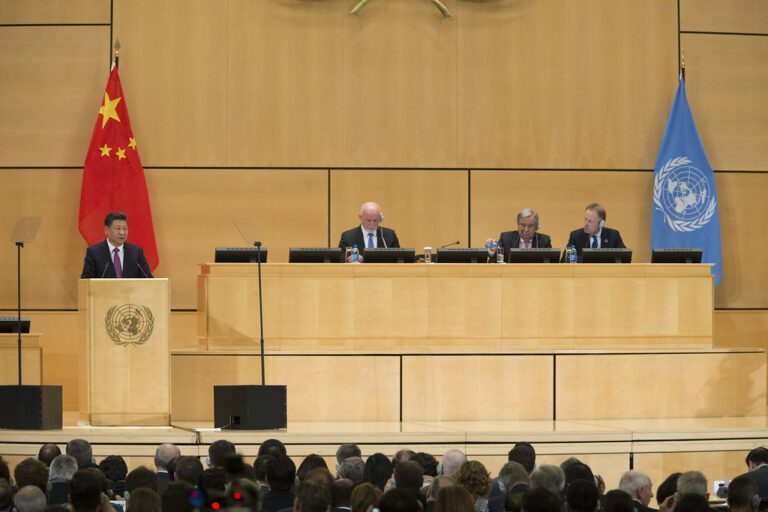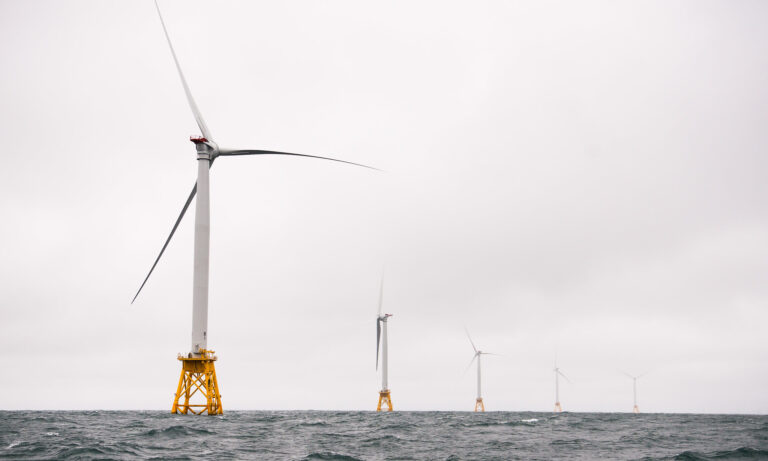
“The Airport is not Chinese; it belongs to the Albanians,” claimed a press release by the concessionaire of Tirana Airport on 10 April 2019. The statement was made one day after yet another dramatic heist, when armed robbers, in a Hollywood-like style, broke onto the airport runway and stole the money of three commercial banks which were being transported through a civilian flight to Vienna.
The passengers have just finished boarding when the gunmen reached the plane and in about three minutes stole around 10 million EUR although the exact amount was never made public. Commercial banks’ shipping of hard currency via air transport has turned into an easy target for criminal groups, highlighting bad management and security failures of state institutions and the airport concessionaire. Back in February 2017, 3.2 million EUR were stolen following similar modus operandi, while in June 2016 another 995,000 EUR were stolen.
The country’s sole international airport, located nearby the capital, was transferred to a Chinese-led joint venture under a concession in 2016 that is expected to expire in 2027. Repeated breaches of security measures have led to a dispute between the government and the concessionaire of one of the most profitable investments in Albania.
Short Story of a Monopoly
Albania’s single airport was inherited from the communist regime and was left to fall into destitution during the first decade of transition. The socialist ruling government in 2004 decided to invest in modernizing the airport by means of a 20-years concession to a German-US consortium. Facing difficult economic conditions, lack of adequate government capacities and in absence of any evidence-based decision making, the concessionary agreement was signed by the government on the basis of the principle that “it won’t cost the state budget anything”. The agreement was for 20 years (2005-2025) and upon the condition of modernizing the infrastructure, the consortium had the exclusivity rights for the national airspace for civil flights, meaning that no other airport could be opened without its consent. The agreement was approved in the Parliament by the whole political spectrum, allowing for a long-term monopoly in this strategic area.
The concessionaire made several investments and recorded a profit, relying on the freedom to set airport fees, which resulted in costly tickets for passengers. The agreement foresaw the possibility of renegotiation every three years. The EU visa liberalization in 2010 favored frequent travels, leading to citizens’ discontent due to high ticket prices. In early April 2016, the Albanian government declared that it succeeded in renegotiating the agreement with the concessionaire, but only with regards to the reduction of the exclusivity clause so as to open two new airports (which is yet to happen). The renegotiation did not touch upon the applicable airport fees. However, this move was expected to increase competitiveness in the air sector, resulting in reduced prices. In exchange, the concession was extended for two more years, until 2027.
A few weeks later, the acquisition of 100% shares of Tirana airport by China Everbright Limited (a state-owned enterprise) and its partner Friedmann Pacific Asset Management Limited was announced. The investment was declared as part of the “corporate strategy to identify good infrastructure investment opportunities, in line with China’s Belt and Road Initiative”. Chen Shuang, the CEO of Everbright Group, pointed out that the “acquisition of the quality asset will create stable cash flow and good investment return to the company and its shareholders”. The concession value was not made public, but media speculated it amounted to about 83 million EUR, constituting therefore one of the two major Chinese investments in Albania, next to the oil extraction concession in Patos-Marinza sold to a Chinese company Geo-Jade Petroleum in 2016.
In October 2016, the transfer of the airport concession shares was formalized and in the concession was registered under a sole shareholder ‘Real Fortress Private Limited’, an offshore company registered in Singapore.
Repeated Security Failures
Tirana airport constitutes a critical infrastructure for Albania and part of its runway is used for military purposes in the frame of the country’s NATO membership. This is regulated by national law and there is an agreement in place with the concessionaire on the joint use of the airport. In principle, airport security is under the authority of the concessionaire which is also responsible for the quality of services provided by the sub-contractor. On the top of the pyramid stands the state’s Civil Aviation Authority that monitors the overall performance. Meanwhile, the state police are responsible for order and security outside the airport perimeter.
However, this security scheme did not serve as a deterrent to prevent repeated failures. Since April 2016, several breaches have occurred. In three episodes armed robbers made off with large cash haul, and at least twice unauthorized persons attempted to embark a plane. During the same period, responsible state authorities undertook at least four security tests under anonymity, which failed miserably. Administrative fines were issued at around 4,000 EUR each, an insignificant amount set as a cap in the concession agreement. It is still unknown why criminal charges were not considered as an option in front of the repeated mismanagement.
Facing the Deadlock
Certainly, these events highlight serious gaps in the functioning and the lack of accountability of all security mechanisms and institutions involved. Following the 2019 heist, the Minister of Interior declared that the concessionaire had not taken action on unsatisfactory airport security conditions and had ignored the official requests for information. The Minister of Infrastructure argued that the measures undertaken by the concessionaire over time had been superficial and insufficient. However, the company rejected the charges of lack of responsibility for airport security and stated that it is the duty of the police forces to safeguard the lives of citizens.
These episodes have been met with silence and a general lack of transparency from the state authorities and insufficient calls for follow-up actions after the security lapses. To a certain extent, there is a lack of will from the government to take action and concerns arise over specific political interests and links. In the aftermath of the heists, the government’s rhetoric on the concessionaire’s wrongdoings has been more of ‘talking the talk than walking the walk’. This concession agreement constitutes an emblematic illustration of a deal made by state authorities against national interests and this is now admitted by all major political parties.
The lack of implementation of the regulatory framework coupled with a permanently weak rule of law at the domestic level seems to have led to putting the concessionaire’s interests above all. An investigative TV show disclosed information on the nepotistic relations in place among the concessionaire’s security senior staff and the sub-contracted company. Although last autumn the CEO was replaced, some weeks ago another investigative show alleged the concessionaire’s corrupting practices in the tendering procedures for the airport shops. Immediately after the 2019 heist, the Minister of Infrastructure pointed out that the concessionaire had prioritized making profit through investments in parking lots at the detriment of reinforcing security.
In fact, this concession has turned into a gold mine for the Chinese company. In 2017 only, the company’s net profit was 18 million EUR, or put differently, 46% of the gross income, the vast majority of which was distributed as dividends to shareholders. An audit requested by the socialist government in 2019 showed that over the period 2005-2018 the concession agreement had resulted in economic unbalances in disfavor of Albania of approximately 84 million EUR more than what was foreseen in the basis scenario of the concession agreement.
The last public information on the airport security date back to the end of 2019, when the State Police signed a cooperation agreement with the concessionaire on increasing security and liability parameters in the airport, such as the deployment of high-quality security cameras and 24-hour monitoring service. It remains to be seen how the Albanian government will proceed with the negotiations for the compensation of the economic unbalances and if this will be translated into more accessible prices for the citizens. Last but not least, the general public is still waiting for the outcome of the investigation on the 2019 heist.
China Factor
Facing criticism in the past, the airport concessionaire shifted the rhetoric on the derogatory reference made by state officials to “Chinese” consortium, rather than on the security chain of command and supervision deficiencies. In the end, the debate degenerated into a heated discussion about the Chinese flag being hoisted next to the Albanian ones at the main entrance of the airport.
A member of the opposition had accused the government of “distorting […] the symbolism of [Albania’s] strategic points of presentation, such as ‘Mother Theresa’ Airport. This is a repeated political signal contrary to the interests of our national orientation towards Europe and the West, it is arrogance and provocation towards our strategic partners, US and EU”. Beyond the political nuance, this statement raised the issue of wider concern on the extent to which Albania was somehow playing with the ‘Chinese card’ and how the Chinese involvement reflected on the country’s policy towards the EU. The Chinese Embassy in Tirana did not make any statements on the security lapses at the airport, continuing with the promotion of the concession as an example of successful cooperation under the Belt and Road Initiative. At the same time, the Albanian government was cautious enough to keep the dispute circumscribed to the single concession without making generalizations.
This is, however, not the only case where the authorities face problems with Chinese investments in the country. Last autumn, the Albanian Competition Authority started an investigation into China’s Bankers Petroleum‘s abuse of a dominant position in the oil market. Nevertheless, overall, the government seems to have prioritized the influx of Chines money before other concerns.
Yet, despite the weak reactions to apparent mismanagement by Chinese companies, it does not seem that Albania is set to become another pillar Chinese presence in the region, following the example of Serbia. In relation to China, Albania’s ‘business as usual’ approach has prevailed, leaving aside the countries’ diametrical positioning on many foreign policy issues, such as the question of Kosovo’s independence. Thus, for the moment, the bilateral relations remain cautious and it is difficult to envisage a break-through anytime soon.
Written by
Gentiola Madhi
Gentiola Madhi is a policy researcher focusing on civil society, good governance and democratization processes. Since 2018, she regularly contributes to Osservatorio Balcani e Caucaso – Transeuropa on Albania’s political and societal landscape. She graduated from the College of Europe (Bruges campus) and University of Florence.


